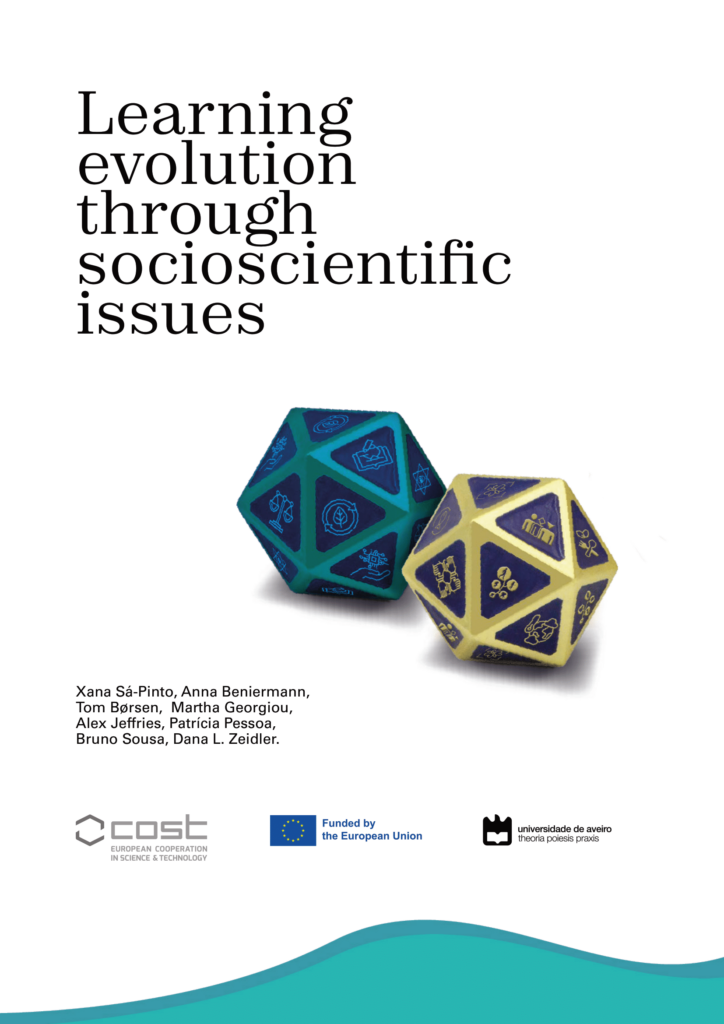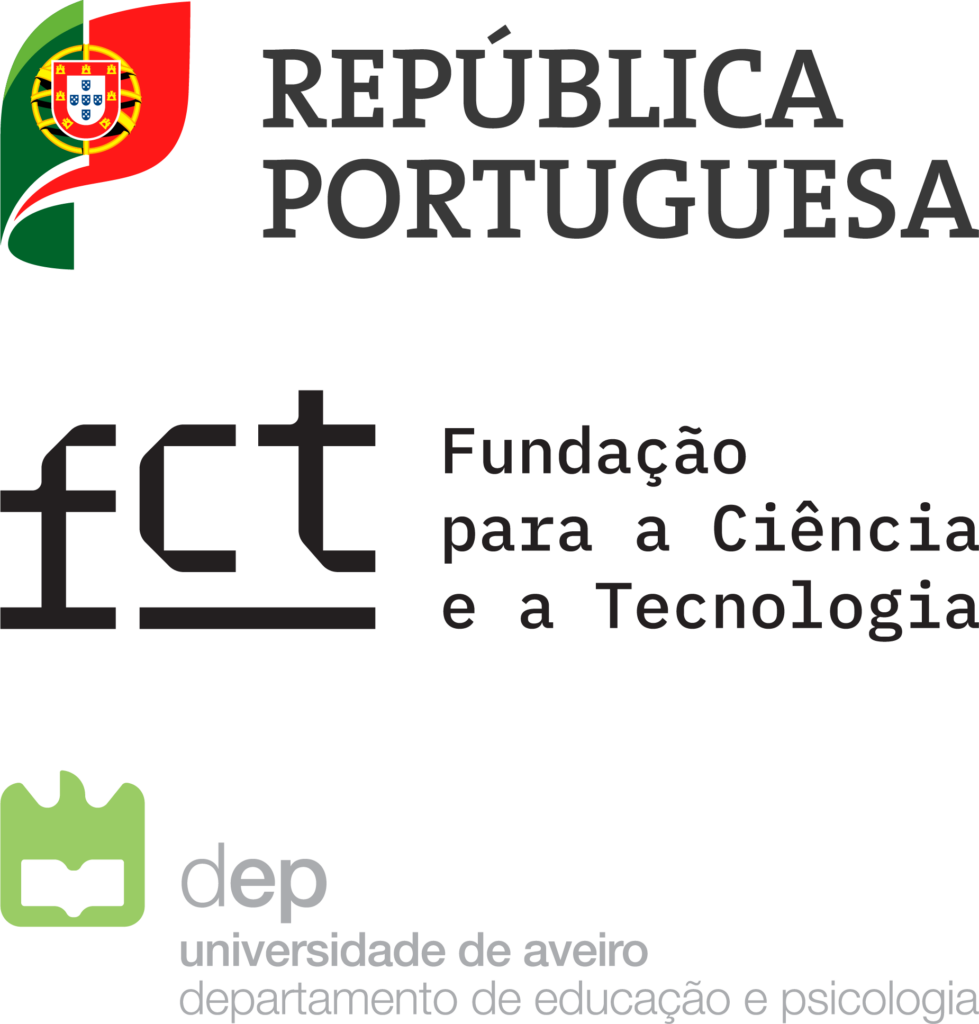Xana Sá-Pinto (CIDTFF), Anna Beniermann, Tom Børsen, Martha Georgiou, Alex Jeffries, Patrícia Pessoa (CIDTFF), Bruno Sousa & Dana L. Zeidler (eds.) | UA Editora
Xana Sá-Pinto (CIDTFF, DEP, UA), Patrícia Pessoa (CIDTFF, UTAD), J. Bernardino Lopes (CIDTFF, UTAD) e Bruno Sousa (Alpoente School Grouping) fazem parte da equipa de autores do livro “Learning evolution through socioscientific issues”, produto dos projetos EvoKE e EuroScitizen.
Produzido por educadores em contextos formais e não formais e por investigadores em biologia evolutiva e em ciências da educação, possui 6 capítulos teóricos sobre o ensino da evolução e sobre a abordagem educativa de Socioscientific Issues e 6 capítulos com atividades educativas que abordam diversos problemas sociocientíficos sobre uma perspetiva evolutiva.
O livro encontra-se disponível em acesso aberto no Repositório Institucional da Universidade de Aveiro.
– – – – –
Excerto do editorial:
This volume is aimed at enacting a progressive vision of scientific literacy that provides teachers and science educators with tools to conceptualize and apply na SSI approach to instruction with the aim of promoting informed understandings of evolution. It is premised on the assumption that leveraging the insights of diverse stakeholders ranging from evolutionary scientists to science educators, from museum professionals to media experts, can contribute to educational solutions to develop students’ scientific literacy, that are easier to implement and more effective in real educational contexts.
The fact that 34 authors and 29 reviewers from 15 distinct countries collaborated to produce this book, is a strong indication of the level of importance that professionals around the globe assign to this topic. It is important to note that moral and ethical issues, which are part and parcel to the SSI framework, can be informed by evolutionary topics as those topics do not stop at the border of any one country any more than global environmental problems are limited to the site of their proximal impact.
Furthermore, inasmuch as biological evolution is related to many global environmental problems that threaten the sustainability of our planet, understanding evolutionary processes may support the planning and evaluation of long-term solutions to these problems by enhancing the ability to understand and assess multiple possible, probable and desirable futures, and promoting the application of precautionary principles in the evaluation of the consequences of our actions. It is important to note that anticipatory competence related to sustainability is one of the competencies mentioned by UNESCO (2018) as essential to promoting sustainability.
There has never been a more pressing time to solicit the collective input of scientists and educators from multiple ocations in different countries. We note, for example, that recent (rapid) advances in technology have presented new challenges to academics in general, and science instruction in particular. The most dramatic affront to classroom learning are students taking photographs of powerpoint slides that consist of words and images sans any degree of deep mental processing.
– – – – –
Referência:
Sá-Pinto, X., Beniermann, A., Børsen, T., Georgiou, M., Jeffries, A., Pessoa, P., Sousa, B., & Zeidler, D. L. (eds.). (2022) Learning evolution through socioscientific issues. UA Editora. http://dx.doi.org/10.48528/4sjc-kj23





